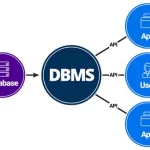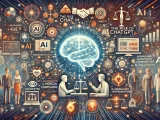
ChatGPT: Revolutionizing AI Applications and Addressing Ethical Challenges
December 21, 2024Introduction: The Rise of ChatGPT
The release of ChatGPT by OpenAI on November 30, 2022, marked a pivotal moment in artificial intelligence (AI). As a powerful large language model (LLM), ChatGPT has captured the attention of researchers, professionals, and the public for its ability to generate coherent, human-like text. This breakthrough in conversational AI offers transformative potential across industries, yet its adoption also raises ethical, societal, and technical concerns. In this comprehensive exploration, we delve into the current research landscape, practical applications, challenges, and the future of ChatGPT.
Understanding ChatGPT: What Makes It Revolutionary?
ChatGPT leverages deep learning and advanced algorithms to analyze extensive datasets from the internet, enabling it to generate diverse and contextually relevant content. Unlike traditional chatbots, ChatGPT facilitates natural conversations, enhancing user interaction and efficiency. With 175 billion parameters and 96 layers, it showcases unprecedented capability in in-context learning and text generation.
This generative model is not limited to analyzing existing data but can create new content, redefining how humans interact with technology. Its broad applicability ranges from reducing operational time to enhancing decision-making processes across various sectors.
Timeline of Main Events:
- 1956:The Dartmouth Conference is held, where the term “artificial intelligence” is coined.
- Allen Newell and Herbert A. Simon develop the Logic Theorist, considered one of the earliest successful AI systems.
- 1957:Allen Newell and Herbert A. Simon develop the General Problem Solver (GPS).
- 1960s-1970s:Focus on symbolic AI, knowledge representation, and logical reasoning.
- 1980s:Rise of “connectionism” and artificial neural networks inspired by the human brain.
- 2010s:Deep learning, a subfield of machine learning, gains significant momentum, achieving breakthroughs in image recognition, NLP, and speech recognition. This lays the foundation for large language models (LLMs).
- November 30, 2022:OpenAI releases ChatGPT, a large language model chatbot. This triggers rapid growth of research interest and development in the field of generative AI.
- January 4, 2023:The authors of the provided paper shortlist 34 articles for a systematic review after searching databases for the terms “Chat GPT” and “ChatGPT”.
- Early 2023:ChatGPT gains significant attention and usage across various sectors, including education, marketing, healthcare, and legal writing.
- Concerns about plagiarism, misinformation, biases, and ethical implications related to AI, and especially ChatGPT are raised in various research publications.
- The fields of research most interested in this technology are identified as Computer Science, Medicine, Social Sciences, and Engineering, with many publications being focused on these areas.
Applications of ChatGPT Across Industries
ChatGPT’s versatility has unlocked potential applications across numerous fields:
- Education:
- Personalized Learning: ChatGPT assists in crafting tailored lesson plans, identifying student strengths and weaknesses, and bridging educational gaps.
- Language Learning: It provides grammar, syntax, and vocabulary feedback.
- Challenges: Concerns include over-reliance on AI, erosion of critical thinking, and issues of plagiarism.
- Healthcare:
- Medical Support: ChatGPT aids in medical recommendations, diagnoses, and summarizing patient records.
- Limitations: It is not a substitute for human expertise and must be used responsibly to avoid errors.
- Marketing:
- Virtual Assistants: Businesses use ChatGPT for customer support and to create customized marketing content.
- Legal Writing and Software Development:
- Legal Documentation: ChatGPT drafts legal documents, with transparency on AI use being critical.
- Coding: It serves as a programming assistant, particularly in creating web-based solutions.
Challenges and Concerns
While ChatGPT’s capabilities are impressive, its adoption comes with significant challenges:
- Data Privacy and Security: Organizations must ensure secure handling of data to prevent breaches and unauthorized access.
- Bias and Fairness: Training on large datasets can perpetuate biases, resulting in unfair or discriminatory outcomes. Efforts to mitigate these biases are crucial.
- Ethical Implications: Transparency, accountability, and ethical decision-making processes are imperative to responsible AI use.
- Reliability and Trustworthiness: Despite its sophisticated algorithms, ChatGPT occasionally generates plausible but incorrect or absurd responses. Rigorous testing is essential to improve accuracy.
- Over-reliance and Misinformation: The model’s confident tone can mislead users, while its ease of use may foster over-dependence.
- Environmental Impact: Training and operating AI models consume significant natural resources, raising sustainability concerns.
ChatGPT in Education: Opportunities and Risks
The integration of ChatGPT in education is particularly transformative:
- Opportunities:
- Assisting educators in lesson planning and data analysis.
- Promoting inclusivity through text-to-speech and speech-to-text features.
- Risks:
- Privacy Concerns: Data collection and analysis may compromise student privacy.
- Algorithmic Discrimination: AI models may inadvertently reinforce historical inequities.
- Automated Grading: Over-reliance on historical norms could disadvantage innovative thinkers.
The Future of ChatGPT Research
Research on ChatGPT is rapidly evolving, focusing on:
- Emerging Themes: New applications in patient care, higher education, and speech processing.
- Bibliometric Analysis: The USA leads in publishing ChatGPT research, with significant contributions from institutions worldwide. Publications highlight topics like “dialogue systems” and “medical AI.”
Moving Forward Responsibly: Harnessing Potential While Addressing Risks
As ChatGPT and similar technologies evolve, it is imperative to:
- Foster Collaboration: Policymakers, researchers, educators, and technologists must collaborate to address ethical concerns and ensure responsible use.
- Prioritize Ethical AI Development:
- Ensure transparency and fairness.
- Mitigate biases and promote inclusivity.
- Educate Users:
- Equip users with critical thinking skills to assess AI-generated content.
- Train educators and students on ethical AI usage.
- Balance Human-AI Interaction: AI should complement, not replace, human expertise. Responsible development and application are key to leveraging its benefits without exacerbating societal risks.
Conclusion: ChatGPT’s Transformative Potential
ChatGPT represents a milestone in AI innovation, offering groundbreaking applications across diverse industries. However, its adoption must be tempered with caution, addressing ethical, technical, and societal concerns. By fostering collaboration and prioritizing responsible development, ChatGPT’s transformative potential can be harnessed to create a future where AI empowers, rather than undermines, human progress.
FAQ on ChatGPT and Large Language Models
- What is ChatGPT and how does it work? ChatGPT is a large-scale generative language model (LLM) developed by OpenAI. It is a conversational agent, meaning it can generate human-like text. It achieves this by analyzing vast amounts of text data from the internet using complex algorithms. Unlike systems that merely analyze or act upon existing data, ChatGPT is a generative model capable of creating diverse and new content, making it adaptable for various applications. It can understand and respond to user prompts in a way that feels like a natural conversation, rather than providing a list of links or keywords.
- What are the primary applications of ChatGPT currently being researched and implemented? Research on ChatGPT is focusing on its applications in a variety of fields, including natural language processing and understanding, dialogue systems, speech processing and recognition, and learning systems. It’s being used in chatbots and for response generation. More specifically, applications are being explored in education, academic writing, technical domains like coding and cybersecurity, creative fields like marketing, and even in healthcare. It can be used for personalized learning plans, generating marketing content, and assisting with medical recommendations. The ability of LLMs to handle diverse datasets makes it a versatile tool.
- What are the main concerns surrounding the adoption of ChatGPT and similar AI technologies? Several apprehensions arise with the adoption of ChatGPT. These include data privacy and security, the potential for biases leading to unfair outcomes, ethical implications, and the reliability of AI systems. AI models are trained on large datasets, which can contain biases. This can result in discriminatory outcomes if not carefully addressed. Transparency, accountability, and trustworthiness are crucial for the successful and ethical adoption of AI systems. In addition, there are concerns over the spread of misinformation due to the overconfidence of the models in providing inaccurate information that can sound correct, and the potential for a lack of moral consistency in AI-driven advice for human decision-making.
- How is ChatGPT impacting the field of education, and what are the key issues being debated? AI, including ChatGPT, is viewed as a powerful tool in education, offering potential for personalized learning experiences and administrative automation. However, it also raises concerns about the erosion of critical analytical skills, the potential for misinformation, reinforcement of biases, and threats to academic integrity, particularly plagiarism. There is a debate on whether AI should be viewed as a tool to augment learning (such as aiding in research, citations, and personalized lesson planning), or a threat that may undermine a student’s ability to think for themselves. There’s also concern about privacy due to the collection of student data and the potential for algorithmic discrimination.
- What are some specific ways that ChatGPT and other AI can be used to support and enhance education? ChatGPT can be used in several ways to enhance education. It can help with creating personalized lesson plans, tailoring them to each student’s needs. AI tools can identify areas where students may be struggling and offer specialized resources, and can be used to reduce time required for data analysis tasks. Moreover, natural language processing (NLP) models can aid students in language learning by providing evaluations on grammar and vocabulary. AI can also promote inclusivity by offering text-to-speech and speech-to-text options. It can also aid teachers in organizing their thoughts, and improve teaching and learning processes, as well as help students with tasks like research and essay writing.
- Beyond education, in what other fields is ChatGPT making an impact? ChatGPT is making significant inroads in fields such as marketing, healthcare, legal writing, and software coding. In marketing, it can be used to create virtual assistants, provide customer support, and generate customized marketing content. In healthcare, it can provide medical recommendations and assist professionals in their work by summarizing patient records and informing medical decisions. In legal writing, guidelines are emerging for the disclosure and usage of AI tools. It’s also being used as a programming tool, capable of generating code to automate tasks, and also for customer entertainment through human-like conversations.
- What are the main areas of focus in current research on ChatGPT? Current research is primarily focused on areas like natural language processing, understanding and response generation, dialog systems, and speech processing. Researchers are also studying the technology’s implications for education and how to integrate AI tools ethically and effectively. There’s an emphasis on identifying biases and mitigating the harmful consequences of biased AI, including algorithmic discrimination. Furthermore, researchers are also analyzing the ethical concerns that have arisen with large language models, and trying to produce guidelines for responsible AI development and deployment.
- What are the limitations of ChatGPT, and what are the implications for its future development? The technology is still in its infancy, so its limitations are important to consider. These include the fact that ChatGPT occasionally generates incorrect or absurd responses, even though they may sound plausible. There’s also the risk of it being too confident in incorrect information, potentially leading to deceptive conclusions. This brings up concerns about ethical implications, especially when used for consequential decision-making where users may overestimate its influence on their judgment. It’s crucial to train AI ethically, ensuring responsible publication and deployment of these tools. Current research also aims at developing more transparent and reliable AI systems that can address the challenges associated with their adoption while maintaining the ethical and responsible development and usage of these tools.
Glossary of Key Terms:
- ChatGPT: A large language model (LLM) chatbot developed by OpenAI, capable of generating human-like text.
- LLM (Large Language Model): A type of artificial intelligence that can understand and generate human-like text.
- AI (Artificial Intelligence): The simulation of human intelligence processes by machines, especially computer systems.
- Natural Language Processing (NLP): A field of AI that focuses on enabling computers to understand, interpret, and generate human language.
- Bibliometric Analysis: A quantitative research method that analyzes publication data (e.g., authors, journals, keywords) to understand research trends and patterns.
- Systematic Literature Review: A comprehensive and rigorous approach to reviewing existing research on a specific topic.
- Generative Model: A type of AI model that can create new content rather than just analyzing existing data.
- Deep Learning: A subfield of machine learning that uses artificial neural networks with multiple layers to analyze data.
- In-context Learning: The ability of a language model to adapt to new tasks or data based on the provided context.
Quiz:
- What is the primary purpose of the Baber et al. paper? (2-3 sentences)
- Describe the methodology employed in the systematic literature review portion of the study. (2-3 sentences)
- What are the main applications of ChatGPT currently emphasized in the research, according to the paper? (2-3 sentences)
- What country leads in ChatGPT-related publications, and what are some emerging themes identified in the keyword analysis? (2-3 sentences)
- What are some of the ethical concerns raised regarding the use of ChatGPT, as discussed in the paper? (2-3 sentences)
- What are the three research questions (RQs) that guided the authors’ investigation? (3 sentences)
- What is the main finding regarding the use of ChatGPT in education? (2-3 sentences)
- Summarize the authors’ perspective on the role of human intelligence compared to AI capabilities like ChatGPT. (2-3 sentences)
- In which industries or fields, besides education, is ChatGPT finding applications according to the review? (2-3 sentences)
- What are two limitations of the study acknowledged by the authors? (2-3 sentences)
Answer Key:
- The main purpose is to provide a systematic literature review and bibliometric analysis of research on ChatGPT, assessing the current research status, trends, and themes. This helps researchers and practitioners understand the current state of knowledge and identify areas for future research.
- The systematic review involved searching databases like Scopus and Google Scholar for articles using “Chat GPT” and “ChatGPT” in titles or keywords. Inclusion criteria focused on peer-reviewed articles published in 2022 and 2023 written in English, while exclusion criteria removed duplicates, theses, and irrelevant studies. A total of 34 articles were selected for in-depth review.
- The main applications currently emphasized include natural language processing and understanding, dialogue systems, speech processing and recognition, learning systems, chatbots, and response generation. These applications span various fields like education, healthcare, and marketing.
- The USA leads in ChatGPT-related publications. Emerging themes revealed through keyword analysis include applications in patient care, medical fields, and higher education.
- Ethical concerns raised include data privacy and security, biases and fairness in AI outcomes, transparency and accountability in decision-making processes, and the reliability and trustworthiness of AI systems. These issues need to be carefully considered to ensure responsible use.
- The three research questions were: How has previous and current research contributed to understanding ChatGPT? What are the theoretical and practical implications of ChatGPT on education and other areas? What are the prominent countries, institutions, journals, and subject categories publishing on the topic, including most cited articles, keywords used, and emerging themes?
- While ChatGPT offers potential benefits in education such as personalized learning and streamlining tasks, concerns exist about the potential negative impact on critical thinking skills, academic integrity, and the spread of misinformation. A balanced approach is needed, incorporating AI responsibly.
- The authors emphasize that AI, including ChatGPT, is a tool and not a replacement for human intelligence. Human intelligence encompasses a broader range of cognitive and emotional capabilities, while AI excels at specific tasks and data processing. Responsible training and ethical considerations are crucial for AI development.
- Besides education, ChatGPT applications are emerging in marketing (customer support, content creation), healthcare (medical advice, diagnosis support, record summarization), legal writing, and software coding. Its adaptability makes it a versatile tool across numerous sectors.
- Two limitations are that the bibliometric analysis results might change rapidly due to the evolving nature of the topic, and the study currently lacks a comprehensive representation of all perspectives (positive, negative, and neutral) on ChatGPT.


















